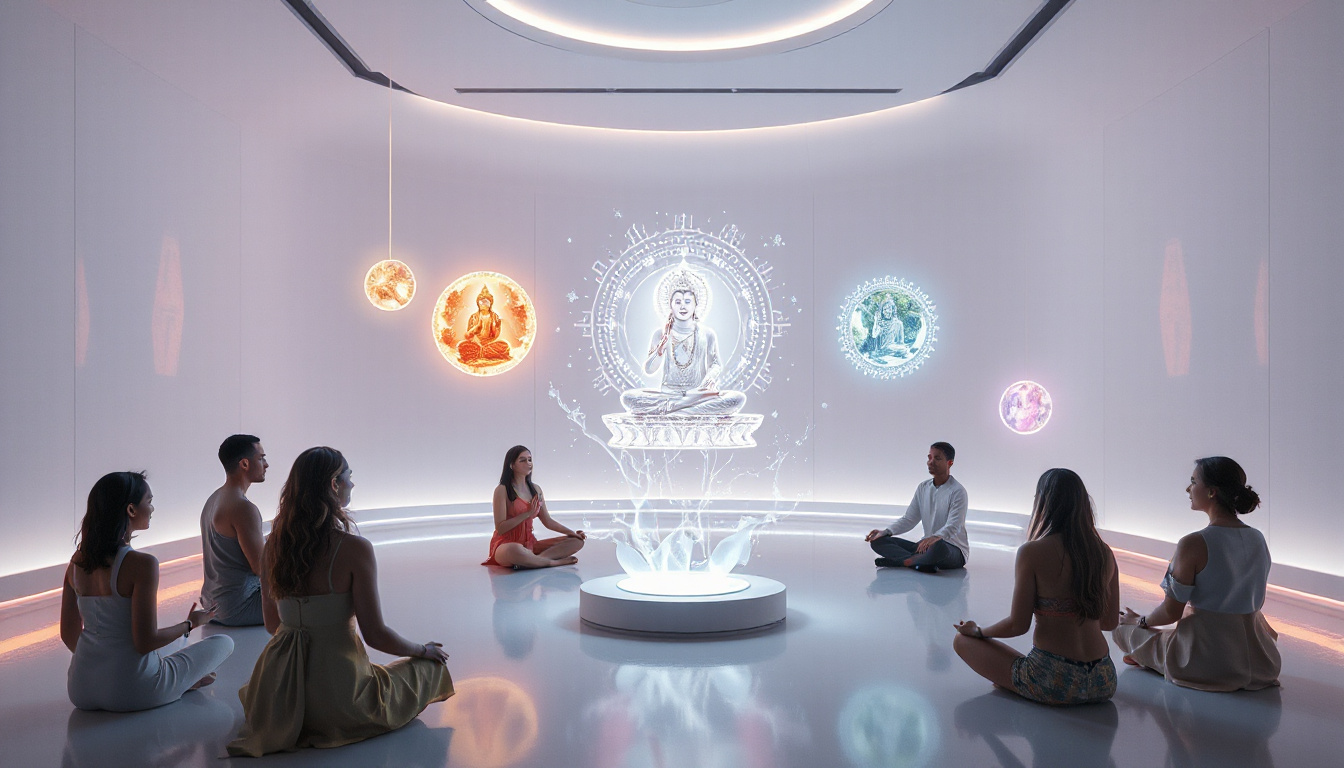Physical Address
304 North Cardinal St.
Dorchester Center, MA 02124
Physical Address
304 North Cardinal St.
Dorchester Center, MA 02124

People Using AI to Communicate with God: A New Spiritual Phenomenon in India and Beyond
By Suvrat Arora, BBC Future – November 2, 2025
In India and parts of the world, many faithful turn to an AI made for worship and guidance. They ask the machine to join the bond between humans and the divine.
Vijay Meel is a 25-year-old student in Rajasthan. He faces life with many hard tasks. Before, he met with a priest. Now, he types to GitaGPT. This AI learned from the Bhagavad Gita. The text holds 700 verses where Krishna speaks. The chatbot tells him he is speaking to a god.
When Vijay failed his banking exam, his heart sank. He wrote down his pain and asked for help. The AI replied, “Focus on your actions and let go of worries about the results.” These words, though known to him, came at a hard time. That chat helped him change his mind and work hard once more. Today, he talks with GitaGPT one or two times each week.
AI changes the ways we work, learn, and feel love. Many faiths now try these chatbots as helpers. Hinduism shows this trend clearly. Its sacred images, known as murti, bring the gods near. In the same way, AI now acts as a link for people who seek daily contact with the divine.
Holly Walters, an anthropologist at Wellesley College in the United States, studies South Asian rituals. She says many feel lost without close ties to a group or elder. Chatting with AI helps them feel part of a warm group that shares belief.
In recent years, several apps have tested AI in a faith context. In 2023, Text With Jesus allowed users to talk with a bot that spoke as Jesus. This app sparked a storm of anger from some who saw it as disrespectful.
In that same year, QuranGPT appeared. It faced more users than expected and soon broke. Other AI versions of old spiritual teachers, such as Confucius and Martin Luther, have come to life. Some new groups, like a church started by ex-Google engineer Anthony Levandowski, work to build an AI that seems almost god-like.
Hindu tradition uses both body and senses in worship. Acts like puja and darshan bind the believer to the sacred. At first, some see AI deities as a novelty. Yet the idea grows fast into a real way to pray.
Vikas Sahu, the maker of GitaGPT, is a business student in Rajasthan. He did not expect much use from his tool. Soon, 100,000 people chatted with his chatbot in just a few days. He plans to add other Hindu gods and to build a central site for Hindu ideas. His passion grew so strong that he left his MBA course to seek funds for his work.
Tanmay Shresth, 23, works in IT in New Delhi. He uses another Gita-based chatbot to feel close to Krishna. He likes that the AI gives kind and clear words. The bot shares steady advice in a world that often changes in a flash.
Big spiritual groups now use AI too. Early in 2025, the Indian guru Sadhguru and his Isha Foundation released the Miracle of Mind app. The app holds AI tools to help with meditation. Swami Harsha, who leads its content, said the app makes old wisdom fit for modern lives. The app reached over a million downloads in just 15 hours.
India’s Maha Kumbh Mela 2025, one of the largest faith events, also put AI to work. One tool known as Kumbh Sah’AI’yak helps pilgrims with travel and stay details. VR and AR also had a role. They built a Digital Mahakumbh Experience Centre. Many could join a virtual darshan, call family, or even take a symbolic dip in holy water from their home.
AI fills more parts of life today. Its role in worship marks a change in how people feel faith. From Vijay to millions who use apps and chatbots for guidance, machines now help bring ancient texts to life. This blend of tradition and new tools offers a modern view of what faith can be. Even as some wonder about the role of machines between man and god, the use of AI in spiritual practice grows fast.